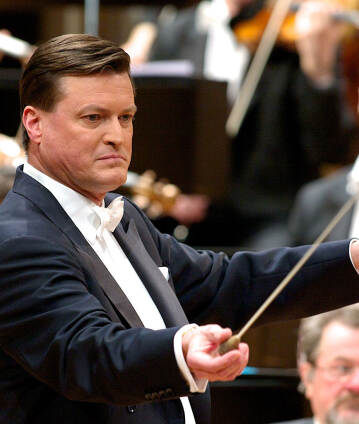Interview
Christian Thielemann en conversation avec Amadeus Heutling Christian Thielemann dirige l’« Eroica » de Beethoven

La Symphonie n° 3 de Beethoven ouvre une nouvelle phase dans l’histoire de la symphonie. Celle-ci n’est plus seulement un jeu de construction à base de thèmes mélodiques et d’instruments, mais le véhicule d’une idée – dans le cas présent, l’idée de l’héroïsme, qui confère à cette partition un dynamisme incomparable. À côté de l’Eroica de Beethoven, le chef d’orchestre Christian Thielemann dirige des œuvres de Liszt et Henze.
Berliner Philharmoniker
Christian Thielemann
© 2015 Berlin Phil Media GmbH
Interviews liées au concert
Artistes
Nos suggestions
- Christian Thielemann et Albrecht Mayer dans des œuvres de Strauss et Bruckner
- Christian Thielemann conducts Bruckner’s Eighth Symphony
- Une soirée Verdi avec Christian Thielemann
- Christian Thielemann dirige la « Pathétique » de Tchaïkovski
- Maurizio Pollini et Christian Thielemann dans le Concerto pour piano n° 1 de Chopin
- Christian Thielemann et Gidon Kremer